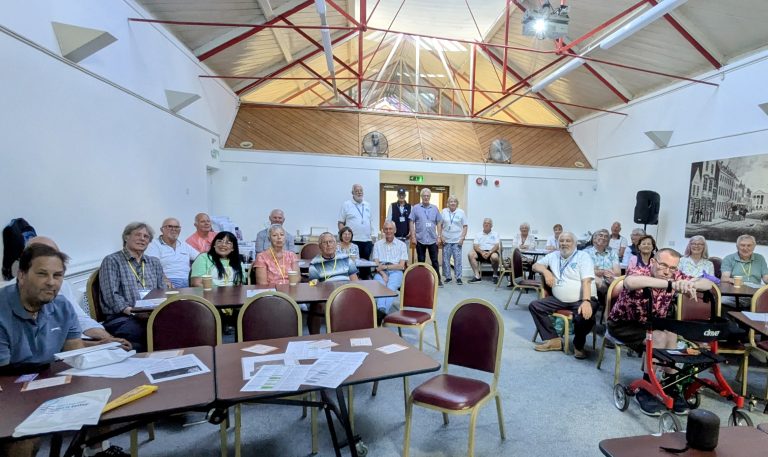Tackle has joined fifteen other leading UK cancer charities today to call on David Cameron to urgently review the National Institute for Health and Care Excellence (NICE) appraisal process for new medicines with thousands of patients now at risk of missing out on clinically-proven cancer drugs.
In an open letter to the Prime Minister – published today in The Daily Telegraph – the heads of leading cancer charities warned of their ‘deep concern’ that plans to leave the NICE appraisal methodology unreformed will soon lead to new effective cancer medicines struggling to gain approval.
The Government’s latest proposals will also see the Cancer Drugs Fund’s (CDF) assessment of medicines handed back to NICE. Ultimately, this means that new drugs will now be assessed for use on the Fund by the same system – originally introduced back in 1999 – that failed to make clinically-proven drugs available to NHS patients and led to the CDF being established as a temporary measure in the first place.
Outlining their key concerns ahead of the launch of the new Cancer Drugs Fund, the 16-charity coalition said: “We need a sustainable system, flexible enough to ensure that the best cancer drugs can routinely benefit NHS patients… please do not allow the assessment of cancer drugs to be consigned to a last-century methodology.”
In 2011, the Coalition Government promised to “reform NICE… so that all patients can access the drugs and treatments their doctors think they need[i]”, setting up the CDF to allow patients access in the short term. This followed several high-profile rejections of effective cancer drugs for use on the NHS.
Having severely overspent its budget in recent years, NHS England and NICE launched a consultation on the future of the CDF in late 2015. But despite overwhelming feedback from patient-representative organisations that further reforms would be needed to ensure that NHS patients have access to effective cancer drugs, virtually no changes were made to the original proposals.
Ahead of the publication of the Accelerated Access Review this summer, the Government has a final opportunity to fully re-consider the drug appraisal system and include all stakeholders in an open dialogue about how to give NHS patients access to effective medicines when they need them.
Among options for reform are the possibilities of giving the system the flexibility for price negotiation – used successfully elsewhere in Europe – or of enabling patient experience to play a more significant role in final decision-making on a drug.
Thanks to significant research progress, scientists are developing more personalised medicines and promising combination therapies, but these advanced new treatments are likely to struggle for approval unless the current appraisal mechanisms are reassessed and reformed.
The letter, dated Wednesday 4th May 2016, reads:
Dear Prime Minister,
Re: The Future of the Cancer Drugs Fund and NICE reform
As a coalition of 16 cancer charities, we know of your personal commitment to the Cancer Drugs Fund (CDF), which has benefited 84,000 families since 2010. But, having seen plans for its long-awaited successor, we are deeply concerned by the lack of reform proposed to the wider NICE process of appraising cancer medicines.
Unfortunately the new system does not update the methodology used by NICE, introduced back in 1999, and many clinically-effective treatments will now struggle to gain approval. We must not forget the CDF was established as an emergency measure to bypass the very NICE appraisal process to which it is now returning because it was not working for cancer patients.
At this late stage, we urge you to intervene and commit to a review of the outdated mechanisms used to assess cancer medicines. We need a sustainable system, flexible enough to ensure that the best cancer drugs can routinely benefit NHS patients. As the Prime Minister who introduced the CDF, we believe that you want these things as well – please do not allow the assessment of cancer drugs to be consigned to a last-century methodology.
Yours sincerely,
Mark Flannagan, Chief Executive at Beating Bowel Cancer
Cathy Gilman, Chief Executive at Bloodwise
Deborah Alsina, Chief Executive at Bowel Cancer UK
Samia al Qadhi, Chief Executive at Breast Cancer Care
Baroness Delyth Morgan, Chief Executive at Breast Cancer Now
Jane Lyons, Chief Executive at Cancer 52
Laura Courtney, Head of Policy and Public Affairs at CLIC Sargent
Monica Izmajlowicz, Chief Executive at Leukaemia Care
Louise Bayne, Chief Executive at Ovacome
Alex Ford, Chief Executive at Pancreatic Cancer UK
Karen Stalbow, Head of Policy, Knowledge and Impact at Prostate Cancer UK
Dr Jesme Fox, Medical Director at Roy Castle Lung Cancer Foundation
Lindsey Bennister, Chief Executive at Sarcoma
Rowena Bartlett, Chief Executive at Tackle Prostate Cancer
Anwenn Jones, Chief Executive at Target Ovarian Cancer
Sarah Lindsell, Chief Executive at The Brain Tumour Charity
[i] HM Government, The Coalition: our programme for government, 2010, https://www.gov.uk/government/uploads/system/uploads/attachment_data/file/78977/coalition_programme_for_government.pdf



